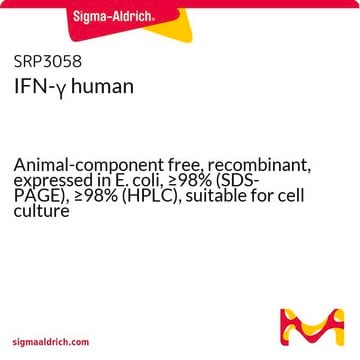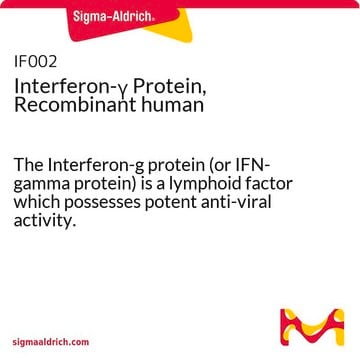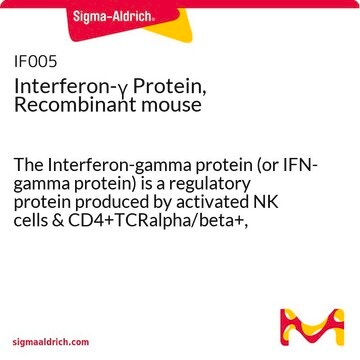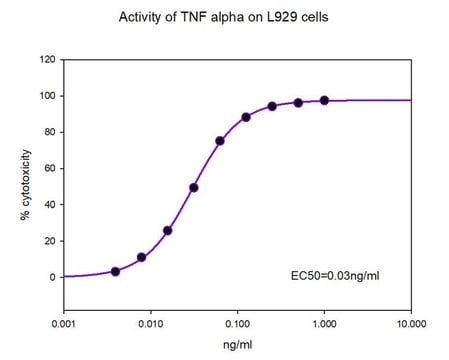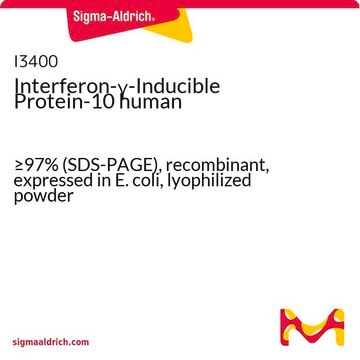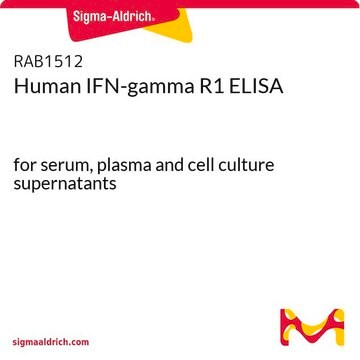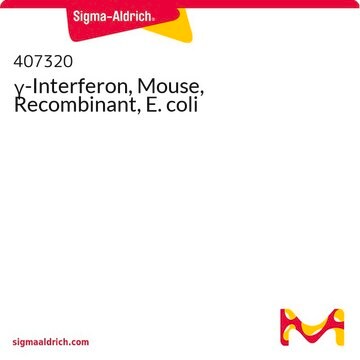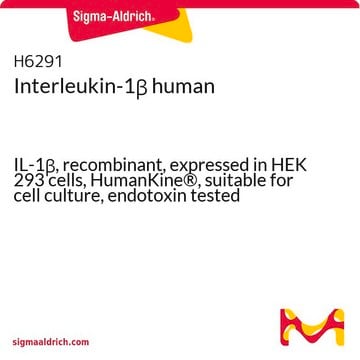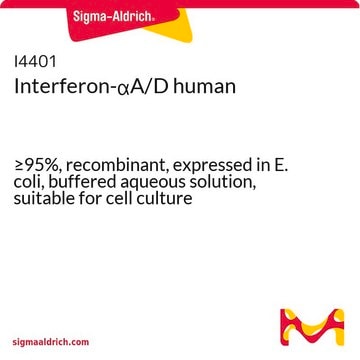I17001
Interferon-γ human
IFN-gamma, recombinant, expressed in HEK 293 cells, suitable for cell culture, endotoxin tested
Sinónimos:
IFN-γ
About This Item
Productos recomendados
recombinant
expressed in HEK 293 cells
Quality Level
assay
≥98% (SDS-PAGE)
form
lyophilized powder
potency
≤0.250 ng/mL In Viral Resistance Assay ED50
mol wt
16 kDa (glycosylated)
technique(s)
cell culture | mammalian: suitable
suitability
endotoxin tested
storage temp.
−20°C
¿Está buscando productos similares? Visita Guía de comparación de productos
General description
Application
Biochem/physiol Actions
Interferon-γ (IFN-γ) plays an essential role in function of virtually all immune cells and both innate and adaptive immune responses. IFN-γ exhibits various biological effects, such as antiviral activity, inhibition of cell or tumor growth and promotion of terminal differentiation of B cells into immunoglobulin-producing cells. This cytokine also activates macrophages, increases cytotoxicity of natural killer cells and promotes T cell cytotoxicity. In addition to antiviral activity, recombinant human IFN-γ is a potent modulator of immune responses and modifies cellular processes.
Sequence
Physical form
Analysis Note
Storage Class
11 - Combustible Solids
wgk_germany
WGK 2
flash_point_f
Not applicable
flash_point_c
Not applicable
Certificados de análisis (COA)
Busque Certificados de análisis (COA) introduciendo el número de lote del producto. Los números de lote se encuentran en la etiqueta del producto después de las palabras «Lot» o «Batch»
¿Ya tiene este producto?
Encuentre la documentación para los productos que ha comprado recientemente en la Biblioteca de documentos.
Los clientes también vieron
Nuestro equipo de científicos tiene experiencia en todas las áreas de investigación: Ciencias de la vida, Ciencia de los materiales, Síntesis química, Cromatografía, Analítica y muchas otras.
Póngase en contacto con el Servicio técnico